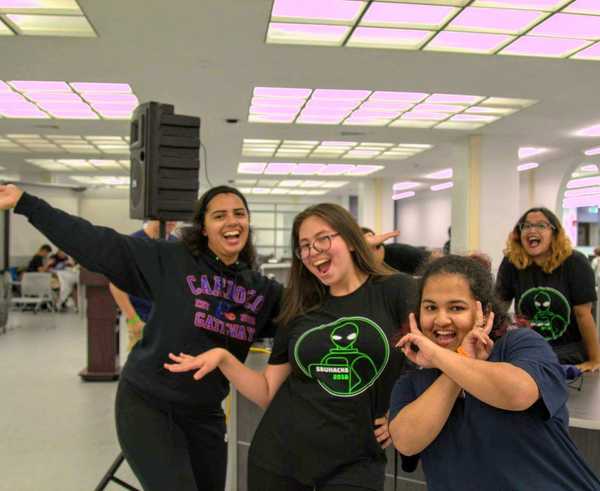There's an implicit understanding established when someone discloses an aspect of their sexuality to you. Or, at least, there should be.
That's why, when asked who of a group had boyfriends, I awkwardly glanced toward my roommate when she didn't raise an indicating hand and gave a knowing smirk as if to denounce it as an overly assuming question. In hindsight, it wouldn't hurt to be a bit more careful so as to never even hint at personal information that does not belong to me, even in the subtlest of ways.
However, this somewhat trivial situation was pretty much replicated for her in a much more saddening context. This summer, we've taken seasonal jobs in a far southern and presumably more conservative location than either of us has ever been before. Though we share a wall, we share the rest of our housing with two other suite mates.
Having been thrown into a foreign city with two already well-acquainted strangers, the two of us have been fortunate enough to be in the presence of such welcoming, kind people in both our newly introduced professional world and living arrangement for the next three months.
But, upon entering our temporary home for the first time and seeing religious decor framed and plastered across the common area walls and situated on its end tables, she immediately started to panic. And, when what seemed like the inevitable question about "a boyfriend back home" arrived, she gave an honest answer, though also lying by omission.
She was raised in a religious home. Attended an all-girls Catholic school, which instilled her hesitation to come out to any of her childhood friends in expectation of them asking if she ever had a crush on any of them. Religion has never been a problem for her. It's fear.
Of course, of these close friends that she's shared this part of her life with, she's had nothing but unconditional love. Unfortunately, this response hasn't been matched by every person in her life.
Growing up in the northern United States, she noticed that even those not like-minded never really brought any attention to queerness. It wasn't until an encounter with a good friend in her college's Baptist community center that sparked any discomfort with being her true self. While discussing progressive issues over gay rights, her completely unaware companion stated, "I don't hate them, but they're going to hell." From that moment on, she put up a wall of defense. Any anxiety induced by these types of claims has only been validated, exacerbated, and further manifested by the prejudice that often accompanies them.
Don't get me wrong, as a straight, white woman, I have observed from an acknowledged position of privilege that this is not the case with everyone everywhere. In fact, these beliefs don't seem to be as widely held as they used to be. We've progressed so much as a society in terms of these kinds of stances, but the few voices that still oppose only seem to get louder to those that are targeted.
Even as an ally, I'm afraid. I can't imagine what it must be like to not be able to discuss something so close to my heart with my own mother. Withhold any information about my significant other because of specific time and place.
I can't imagine where to go from here. But, I absolutely must if I ever want to make our world safe enough for those who have no needing for imagining.



















